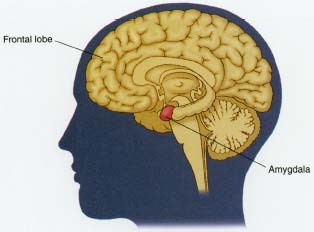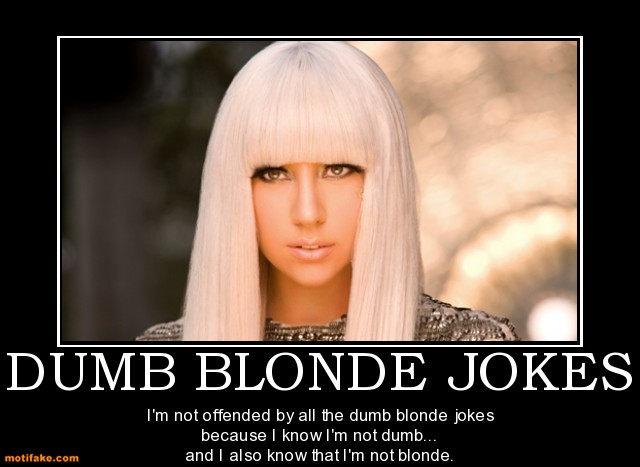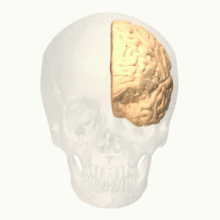IQ expression vs IQ
An IQ study conducted at Virginia Tech Carilion Research Institute challenges the idea that IQ is something we can measure with an IQ test and apply consistently in any situation. The key concept that this study puts in the spotlight is IQ EXPRESSION. You might have your IQ measured at 120. This is a high IQ and you should be pretty smart. But you might find yourself in a situation where you feel dumb and can’t express this level of IQ. Particularly – as we shall see in the data – if you are a woman.
Read Montague and his group at Virginia Tech Carilion Research Institute demonstrated that certain social situations can make smart people dumber – by around 20 IQ points. Which situations? Those in which you find yourself in a small group where evaluating each other in terms of how smart you are!
“You may joke about how committee meetings make you feel brain dead, but our findings suggest that they may make you act brain dead as well,”
Read Montague, director of the Human Neuroimaging Laboratory and the Computational Psychiatry Unit, VTCRI
The IQ status experiment
In their study smart people with similar baseline IQs (with a high average of 126 compared to the national average of 100) were put into groups of five and ranked for their performance on mental tests. When rankings within the group were shown publicly as group members worked on the test questions, those who came out with lower rankings started under performing in subsequent problems, and this effect increased over time – creating a greater and greater divide between high ranking and low ranking individuals. The difference in high ranking and low ranking individuals ended up near 20 IQ points – a hefty difference.
Let me repeat: around 20 IQ points.
Brain activity associated with becoming dumber
Everyone in the group was affected by the social ranking that they were all made aware of to the extent it actually changed their brain activity patterns – measured using fMRI brain imaging magnets.
Amygdala and Prefrontal Cortex and IQ

Performance on the problem solving tests activates both the amygdala and the prefrontal cortex. The amygdala is an almond shaped nuclei with a central role in emotion processing and fear conditioning. The pre-frontal cortex is located at the front of the frontal lobe and is involved in higher order cognition such as reasoning, planning and problem solving and decision-making.
At the beginning of the problem solving test, all group members had lowered prefrontal activation and raised amygdala activation – perhaps reflecting the emotional stress associated with doing a test. But by the end of the task, the high-performing group showed lower amygdala activation and an increased prefrontal cortex activation. This pattern of brain activity is associated with an increased ability to solve more difficult problems.
By contrast, the brains of those who had a feeling of being ‘lower ranking’ didn’t dial down the amygdala alarm bell, allowing the higher parts of the brain to do their HOCS thing (higher order cognitive skills). At the beginning of the problem solving test, all group members had lowered prefrontal activation and raised amygdala activation – perhaps reflecting the emotional stress associated with doing a test. But By the end of the task, the high-performing group showed lower amygdala activation and an increased prefrontal cortex activation. This pattern of brain activity is associated with an increased ability to solve more difficult problems.
The Anterior Cingulate Cortex and IQ
There is another part of the brain called the anterior cingulate (shown below) that responds to errors or a conflict between an appropriate response and actual behaviour. The anterior cingulate of lower ranking individuals was more active – indicating perhaps that they were aware of a mismatch between their inability to solve problems and what they ought to be managing.
Women more susceptible to becoming dumber under social pressure
This pattern of results was the same for different ages and different ethnicities. However, there was a gender difference. Fewer women ended up in the high-performing group and significantly more (10 of 13) fell into the low-performing group – even though on average men and women started out with the same IQ level. The social status competition drove the females performance down more steeply than the men’s.
It’s not just social stereotyping that can lower IQ
The researchers believe that the same thing happens in more subtle ways in everyday group situations. Social cues about who ranks higher than others sends out shockwaves in brain activity that greatly affect cognitive performance. These small groups could be anything ranging from class-room interactions, self-assessment meetings, committee meetings, board room meetings – anywhere where people may be evaluating each other in terms of cognitive ability – where there is this kind of social pressure.
Previous behavioural studies suggest that broad stereotypes about social status are harmful to individuals’ intellectual performance. This study shows that the at a ‘micro’ level, labelling can also occur in small groups and dramatically affect performance.
“We don’t know how much these effects are present in real-world settings. But given the potentially harmful effects of social-status assignments.. future research should be devoted to what, exactly, society is selecting for in competitive learning and workplace environments. By placing an emphasis on competition, for example, are we missing a large segment of the talent pool? Further brain imaging research may also offer avenues for developing strategies for people who are susceptible to these kinds of social pressures.”
Kenneth Kishida, a research scientist with the Virginia Tech Carilion Research Institute
Getting to the center of IQ power circles
When there is a ‘cult of smartness’ among powerful politically influential groups in society, this kind of labelling effect can have serious implications.
“We need to remember that social dynamics affect not just educational and workplace environments, but also national and international policy-making bodies, such as the U.S. Congress and the United Nations.”
Kenneth Kishida
Related to this idea is an interesting article by Christopher Hayes in The Nation.
“In Liquidated: An Ethnography of Wall Street, anthropologist Karen Ho shows how the obsession with smartness produces “a meritocratic feedback loop,” in which bankers’ growing influence itself becomes further evidence that they are, in fact, “the smartest.” According to one Morgan Stanley analyst Ho interviewed, those being recruited by the firm “are typically told they will be working with ‘the brightest people in the world. These are the greatest minds of the century.’” Robert Hopkins, a vice president of mergers and acquisitions at Lehman Brothers, tells her of those who inhabit Wall Street: “We are talking about the smartest people in the world. We are! They are the smartest people in the world.”
Christopher Hayes, The Nation
What happens when smart guys from Wall Street or the Federal Reserve or economists from an Ivy League university get in a room with our politicians to determine economic policy? Could it be that bravado and other ‘smarts’ signalling triggers those brain patterns and our politicians feeling ‘outsmarted’ while temporarily bottoming out in their IQ – precisely at the point when they need to be at their sharpest to hash out strategy and policy?

President Barack Obama with Ben Bernanke, Chairman of the Federal Reserve
And this idea generalizes to any group situation where some individuals send out signals to the effect that ‘I’m smarter than you’.
A provocative hypothesis!
Please let us know if you have had any experience of this phenomenon at any level.
Reference
Kishida, K. T., Yang, D., Quartz, K. H., Quartz, S. R., & Montague, P. R. (2012). Implicit signals in small group settings and their impact on the expression of cognitive capacity and associated brain responses. Philosophical Transactions of the Royal Society B: Biological Sciences, 367(1589), 704 –716. doi:10.1098/rstb.2011.0267


